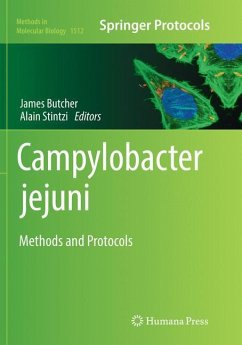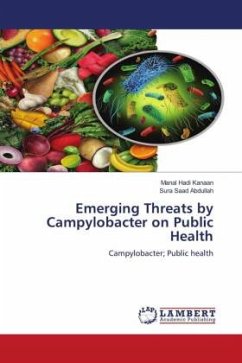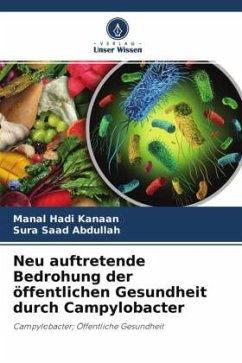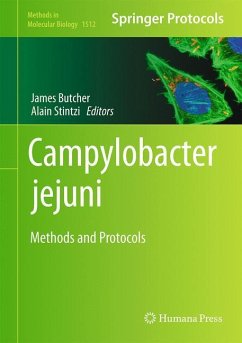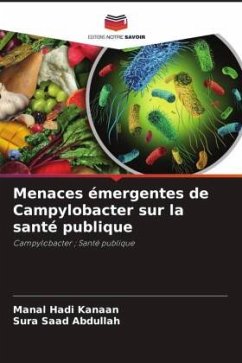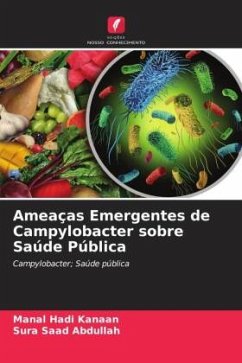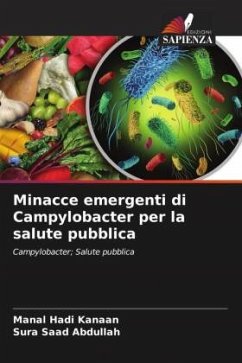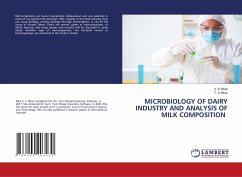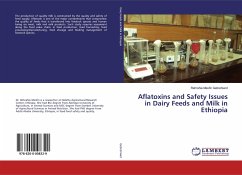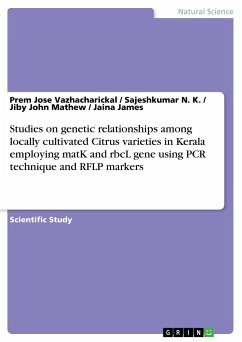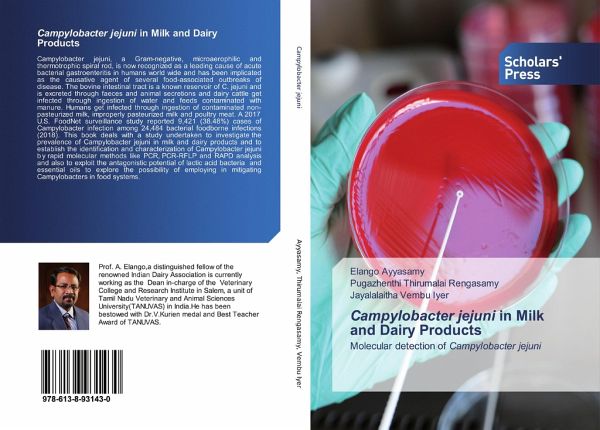
Campylobacter jejuni in Milk and Dairy Products
Molecular detection of Campylobacter jejuni
Versandkostenfrei!
Versandfertig in 6-10 Tagen
53,99 €
inkl. MwSt.

PAYBACK Punkte
27 °P sammeln!
Campylobacter jejuni, a Gram-negative, microaerophilic and thermotrophic spiral rod, is now recognized as a leading cause of acute bacterial gastroenteritis in humans world wide and has been implicated as the causative agent of several food-associated outbreaks of disease. The bovine intestinal tract is a known reservoir of C. jejuni and is excreted through faeces and animal secretions and dairy cattle get infected through ingestion of water and feeds contaminated with manure. Humans get infected through ingestion of contaminated non-pasteurized milk, improperly pasteurized milk and poultry me...
Campylobacter jejuni, a Gram-negative, microaerophilic and thermotrophic spiral rod, is now recognized as a leading cause of acute bacterial gastroenteritis in humans world wide and has been implicated as the causative agent of several food-associated outbreaks of disease. The bovine intestinal tract is a known reservoir of C. jejuni and is excreted through faeces and animal secretions and dairy cattle get infected through ingestion of water and feeds contaminated with manure. Humans get infected through ingestion of contaminated non-pasteurized milk, improperly pasteurized milk and poultry meat. A 2017 U.S. FoodNet surveillance study reported 9,421 (38.48%) cases of Campylobacter infection among 24,484 bacterial foodborne infections (2018). This book deals with a study undertaken to investigate the prevalence of Campylobacter jejuni in milk and dairy products and to establish the identification and characterization of Campylobacter jejuni by rapid molecular methods like PCR, PCR-RFLP and RAPD analysis and also to exploit the antagonistic potential of lactic acid bacteria and essential oils to explore the possibility of employing in mitigating Campylobacters in food systems.



